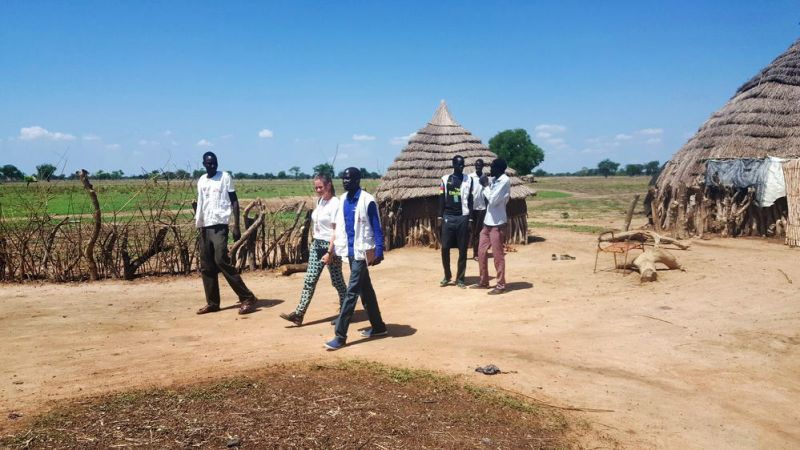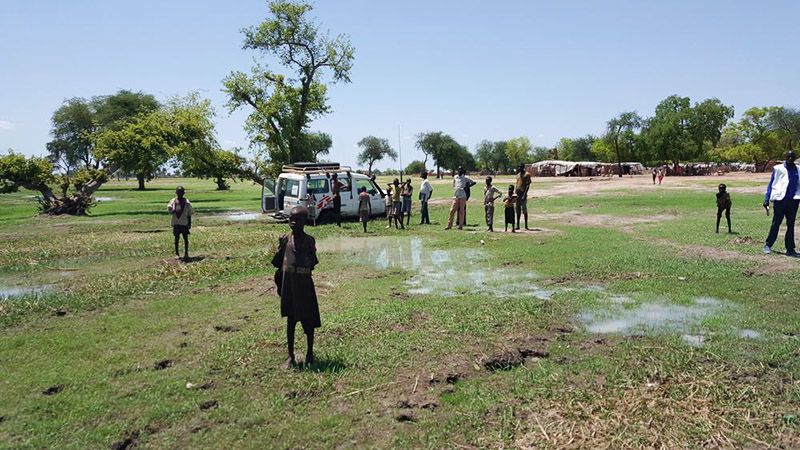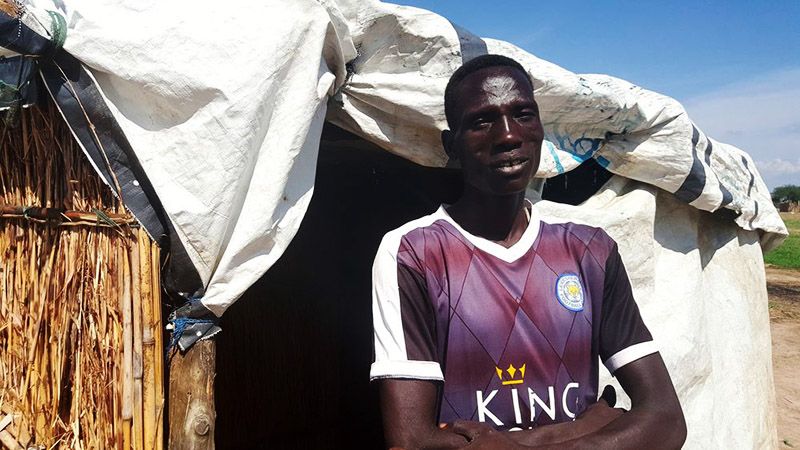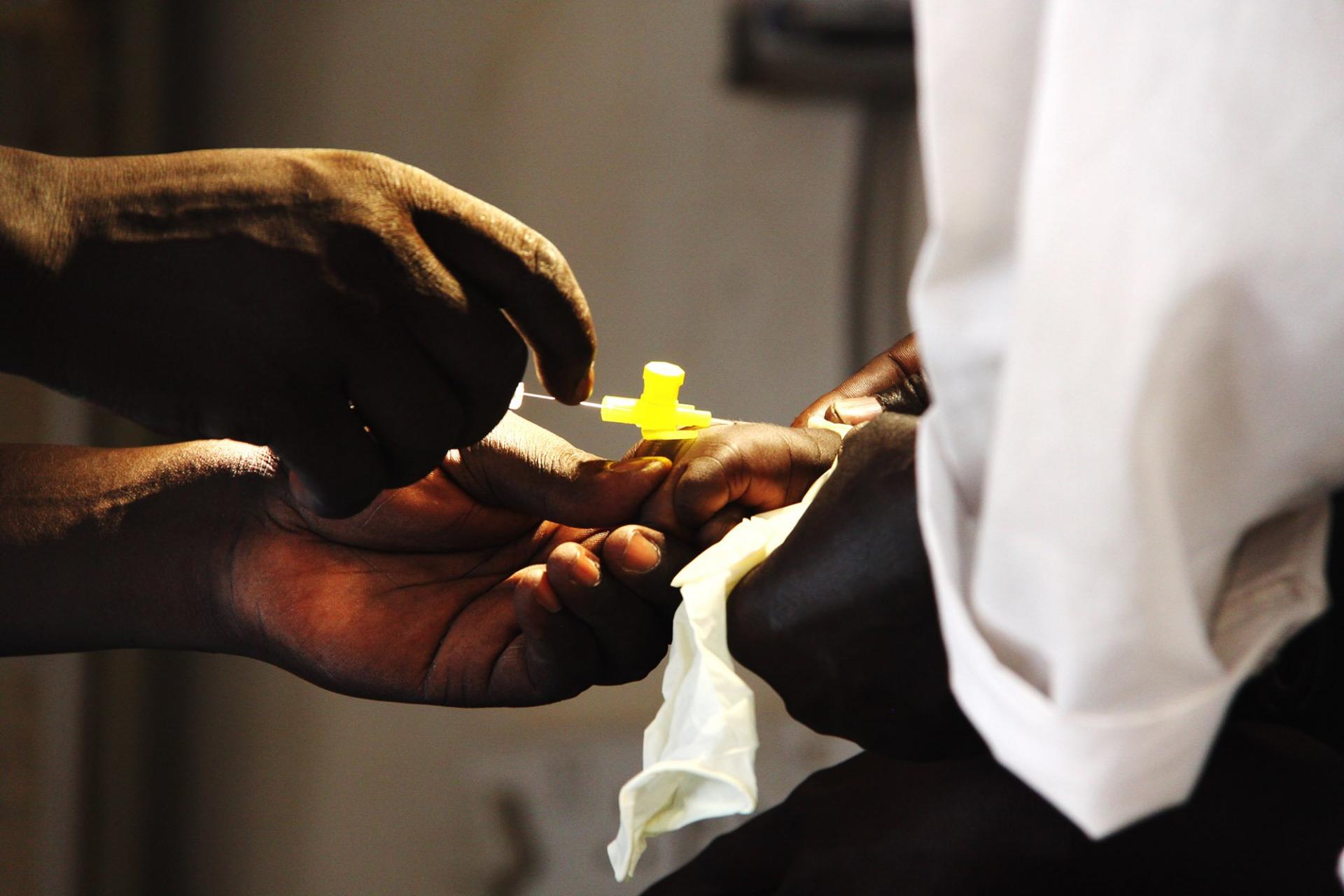Juba - In Agok, Abyei Special Administrative Area (ASAA), a disputed territory between Sudan and South Sudan, Doctors Without Borders (MSF) is setting up community advanced malaria posts or “CMAP” during the rainy season for the 3rd year in a row.
With those posts in remote areas, patients have access to test and treatment for simple malaria in their community rather than having to walk for hours to reach the hospital.
This strategy aims at reducing the number of patients with severe malaria that come to the hospital, the mortality associated with malaria but also to quickly detect the disease in remote communities and treat malaria as soon as possible.

The “CMAP project” or community malaria project started in 2015 as a response to the severe malaria outbreak that hit the area. “We wanted the people in the community to be able to test and treat simple malaria so that patients don’t come to the hospital very sick, explains Tara Smith, supervisor of the community malaria project in Agok.
This year, 22 villages will be part of this special programme aimed at reducing the morbidity of severe malaria in the area around Agok town.
Two volunteers are trained in each village and MSF also provides the rapid test to diagnose malaria and the drugs for the treatment of simple malaria.
When a patient comes with severe malaria, he is referred to one of the primary health care centers in the area or to MSF hospital in Agok. Last year, 40.000 people were tested and treated in their community.
“In many villages, it is extremely difficult to reach the hospital during the rainy season. People would have to carry the patient on a blanket or a sheet and walk for several hours, explains Tara Smith.
In the most remote areas, primary health care centers are sometimes far away or simply impossible to reach because of the mud when the rains start.

“Sometimes, a few hours can make the difference between life and death, especially at night when people don’t have to make the difficult decision to wait for the next day to go to the clinic, continues Tara Smith, but it also allows people to have a normal life during the rains, go to the field, to the church and take care of their family and not have to walk for hours to get treatment for a simple disease”.
Malaria causes fever and extreme body pain, sometimes stomach pain and diarrhea. In its severe form, it can provoke neurological symptoms, anemia, bleeding and, eventually, death.
“Before this project, we used to spend our days carrying children to the health centre, recalls Maliai Mathiang, a volunteer from Rumkor involved in the project since 2015. f an organisation is willing to give drugs, we should take this opportunity to offer ourselves to support the people”, explains the volunteer who dedicates a large amount of his time to do work.
“It happens often that we are working in the fields and then someone calls us because there are patients waiting. Sometimes this place is full of patient and we just spend our day treating them”, explains Abraham Kalei, also volunteering in Rumkor.

MSF is also providing training to the volunteers to be able to recognize malaria, perform the test, treat the simple cases and refer the complicated cases timely.
“Since we had the training we can recognize the symptoms of malaria and refer the patients on time. Before, we had a lot of people dying in the community, and it was not always possible for patients to go to the primary healthcare unit as it was happening very fast. Now we can treat it very easily”.
“What I hear over and over again is “I just want to help my people”. This is the motivation, they look out for each other, describes Tara Smith, whose team goes to each village every week to follow up with the volunteers, train them and bring them supply.
The community takes a lot of proud of it, they are happy to be able to do that for themselves. One chief told me “thanks for bringing a small hospital to us”,” concludes Tara Smith.
Findd out more about MSF's work in Sudan and South Sudan.
